Best Fruit On A Low Carb Diet
Best Fruit On A Low Carb Diet
Low-carb fruits and berries – the best and the worst
- Berries
- Fruits
- Top 10
- Recipes
- Similar guides
- Q&A
What are the best and the worst fruits and berries to eat on a low-carb diet?1 Here's the short version: most berries are OK low-carb foods in moderate amounts, but fruits can be seen as candy from nature (they contain quite a lot of sugar).2 Just because the sugar comes from a fruit does not mean that it's good for you.
For more details, check out this guide, with the lower-carb options to the left.
Berries
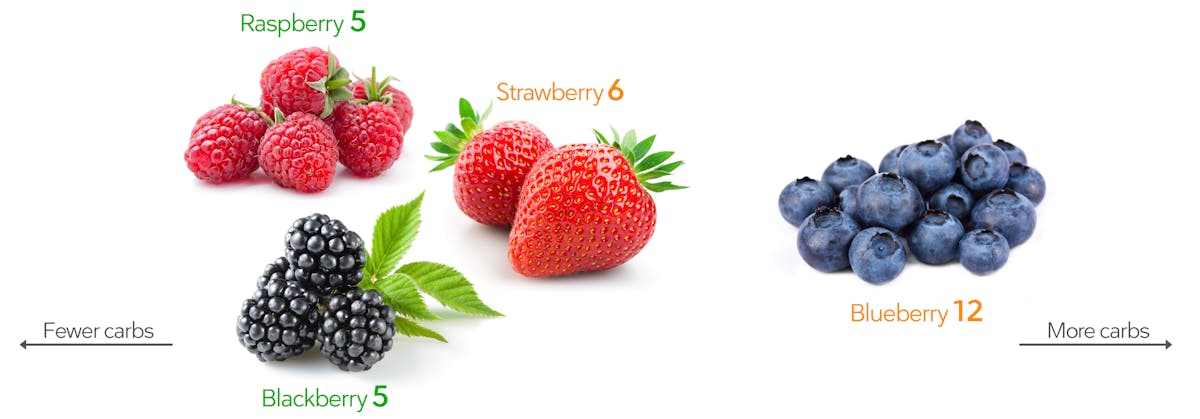
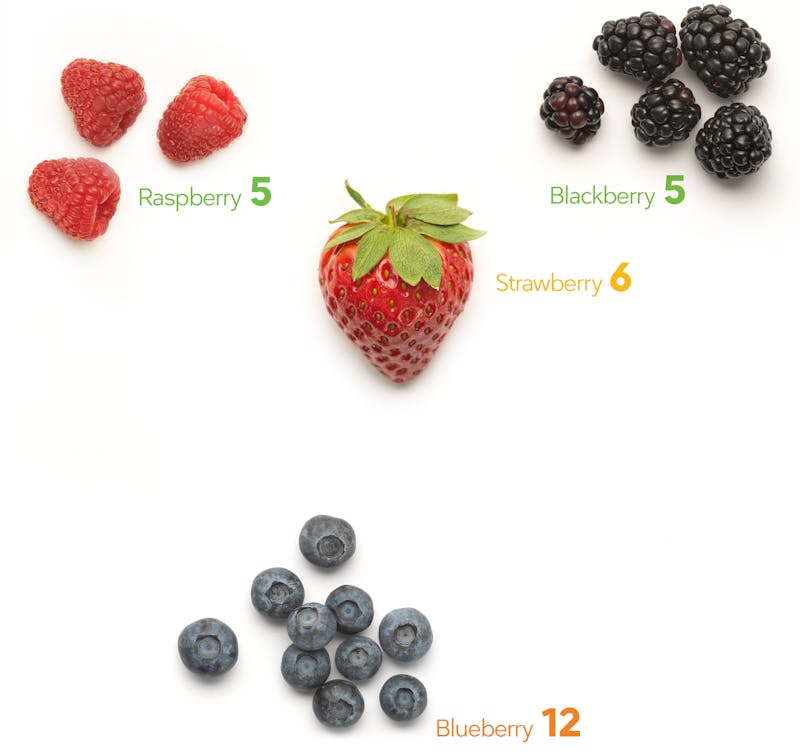
The numbers above are the percentages of digestible carbohydrates i.e. net carbs (fiber is not counted).3 Think of them as numbers of grams of carbohydrate per 100 g of berry (3½ ounces). See the complete carbs list for berries:
Carbs list
Raspberries, blackberries and strawberries can be eaten in small amounts on a ketogenic low-carb diet, and you can eat them more freely if you're on a more moderate low-carb diet.4
Blueberries contain twice as many carbs as strawberries, so don't overdo them – on a keto diet you should eat them only occasionally and in limited amounts.
Fruits
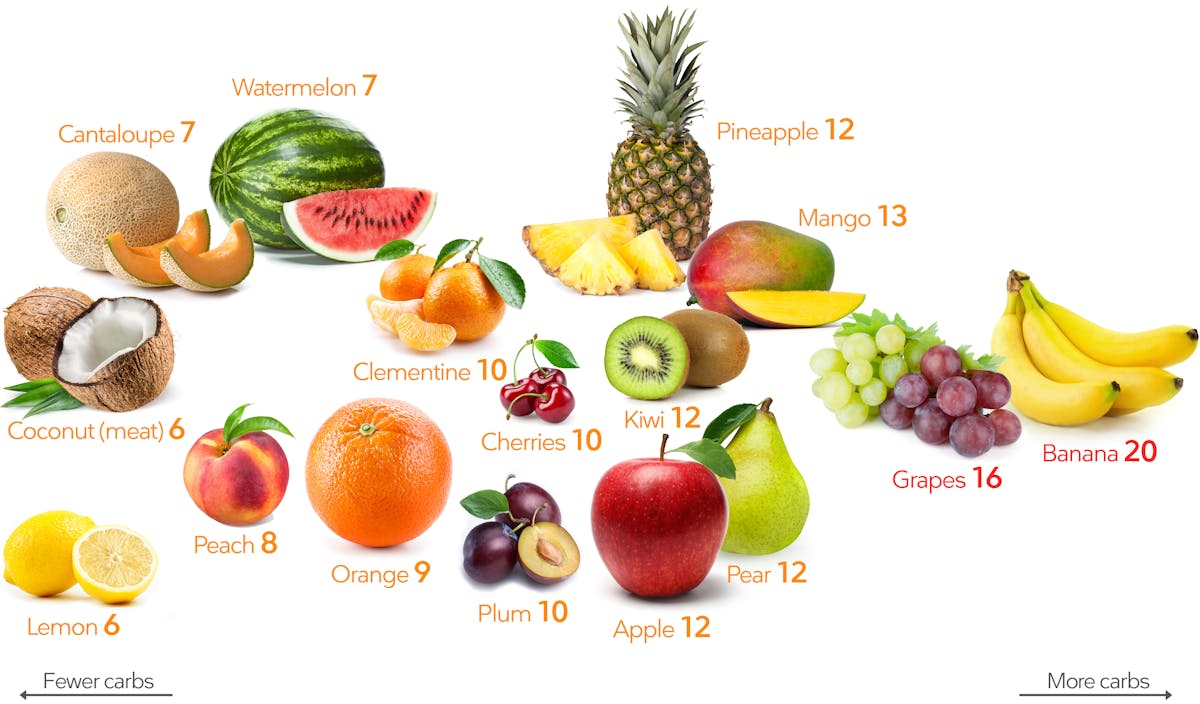
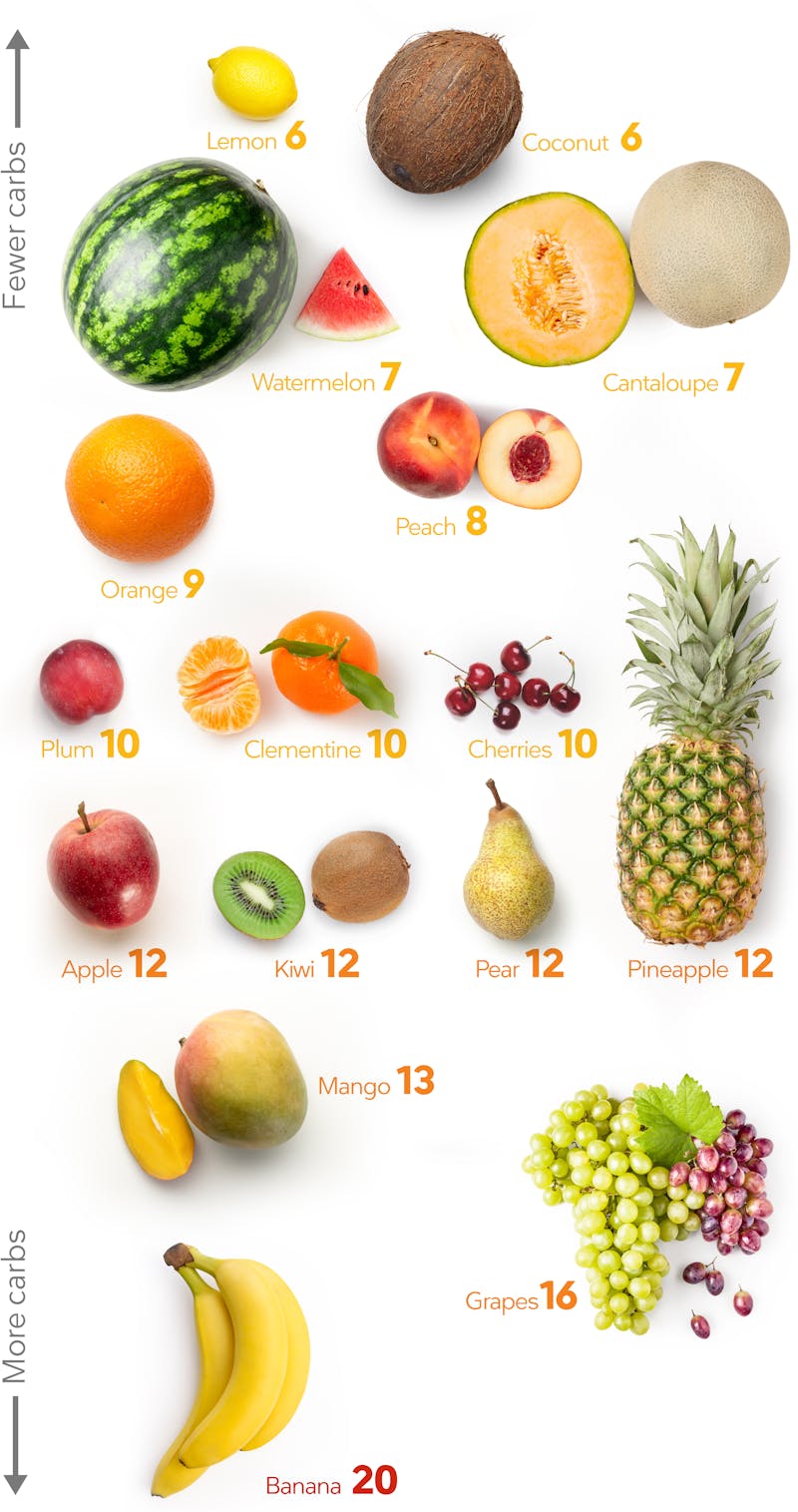
So how about other fruit? As you can see, fruits contain quite a few carbs (mostly in the form of sugar). That's why fruits are sweet! Fruit is candy from nature.
For easy comparison all numbers are grams of digestible carbs per 100 grams (3½ ounces) of the fruits.
A medium-sized apple (180 grams) may contain about 21 grams of carbs. See the complete carbs list for fruits:
Carbs list
How much fruit can you have?
This means that on a keto low-carb diet (<20 grams per day) you're probably better off having some berries instead. You don't actually need to eat fruit. You can get any nutrient in fruit from vegetables – without all the sugar. Therefore, perhaps you want to try eating plenty of low-carb vegetables instead.5 6
Even on a more moderate low-carb diet (20-50 grams per day) you'll have to be careful with fruit – probably no more than about one serving per day.
On a liberal low-carb diet (50-100 grams per day) you may be able to squeeze in two or three fruits a day, if that is your biggest source of carbs.
As you see, grapes and bananas are the highest-carb fruits of them all.
Top 10 low-carb fruits

Let's say you occasionally want to eat a fruit (or some berries) while still staying relatively low carb. What fruit would be the best choice?
Below, you'll find the best options, ranked by grams of net carbs.7 The lowest-carbs options are at the top.
- Raspberries – Half a cup (60 grams) contains 3 grams of carbs.
- Blackberries – Half a cup (70 grams) contains 4 grams of carbs.
- Strawberries – Eight medium-sized (100 grams) contains 6 grams of carbs.
- Plum – One medium-sized (65 grams) contains 7 grams of carbs.
- Clementine – One medium-sized (75 grams) contains 8 grams of carbs.
- Kiwi – One medium-sized (70 grams) contains 8 grams of carbs.
- Cherries – Half a cup (75 grams or about 12 cherries) contains 8 grams of carbs.
- Blueberries – Half a cup (75 grams) contains 9 grams of carbs.
- Cantaloupe (melon) – One cup (160 grams) contains 11 grams of carbs.
- Peach – One medium-sized (150 grams) contains 13 grams of carbs.
As a comparison, a large orange contains about 17 grams of carbs, a medium-sized apple about 21 grams and a medium-sized banana about 24 grams of carbs.
Isn't fruit natural?
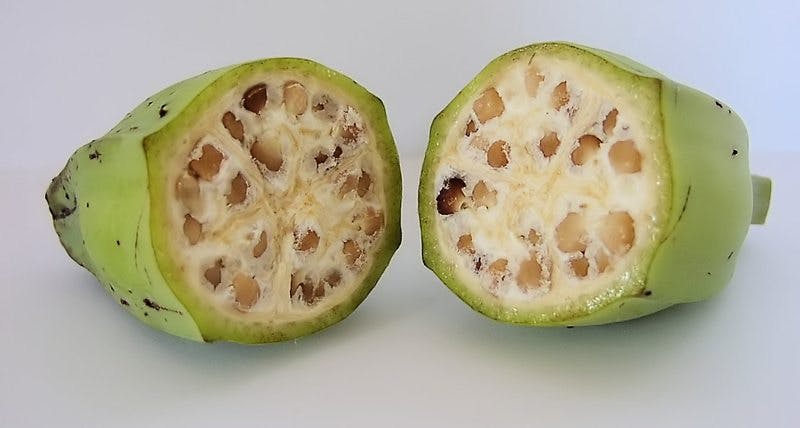
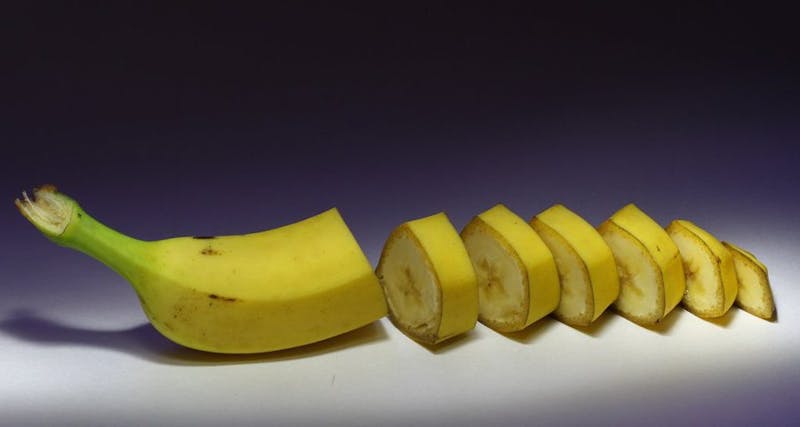
Fruit is usually considered a very natural food, something humans have always eaten. However, from an evolutionary perspective there are often massive differences between today's fruits in the supermarket, and what fruit used to look like before, in nature:
What fruits and vegetables looked like before
Furthermore, for most of human history, fruit was only available for limited time periods during the year, when they were ripe. Our ancestors, just like primates in natural habitats, were only able to eat plenty of fruit when it was available.8 If any excess sugar helped them gain weight, this could have been helpful to survive through lean times and protect them from starvation.
These days, fruit is always available and many people may find that their bodies have a hard time handling the excess sugar in fruit eaten throughout the year.9
Berry recipes
A moderate amount of low-sugar berries can be OK on a low-carb diet. Here are our top recipes:
Worse choices

Of course a fruit is still probably better than many other snack options – like a muffin or a handful of candy. All fruit (even bananas) are much lower in carbs than these.10
Q&A
Below you'll find a few common questions about low-carb fruits, with answers. For more like this, check out our full low-carb FAQ.
What fruits are the lowest in carbs?
Remember: "Berries are best." Raspberries, blackberries and strawberries are your best bet, with net carb counts of around 5 or 6 grams per 100 grams. Beyond that, perhaps a plum or a few cherries. Check out the visual guide above for exact carb counts for common fruits.
What fruits are high in carbs?
The worst offenders are bananas, at 20 net carbs per 100 grams, and grapes, with 16 net carbs per 100 grams. But most fruits, including oranges and apples, are fairly high in sugar and carbs.
What is the best fruit to eat to lose weight?
There's no great option. Because of their sugar content, it's probably better to keep the fruit intake low if you want to lose weight on a low-carb diet.11 But a handful of berries is a fairly safe option if you want something fruit-like, without eating a lot of sugar. Beyond that, have a look at our top-10 list above.
Why isn't avocado or tomato listed?
While technically they are fruits, most people probably think of an avocado or a tomato as a vegetable. Therefore, we've chosen to list them on our low-carb vegetables page.
Don't I need the fiber and nutrients from fruit?
While it it true that fruit contains fiber and nutrients, they are far from the only source. Above ground vegetables are a much better choice with an equal or greater amount of fiber and nutrients but with only a fraction of the sugar.
Full low-carb diet FAQ
Similar low-carb guides
More
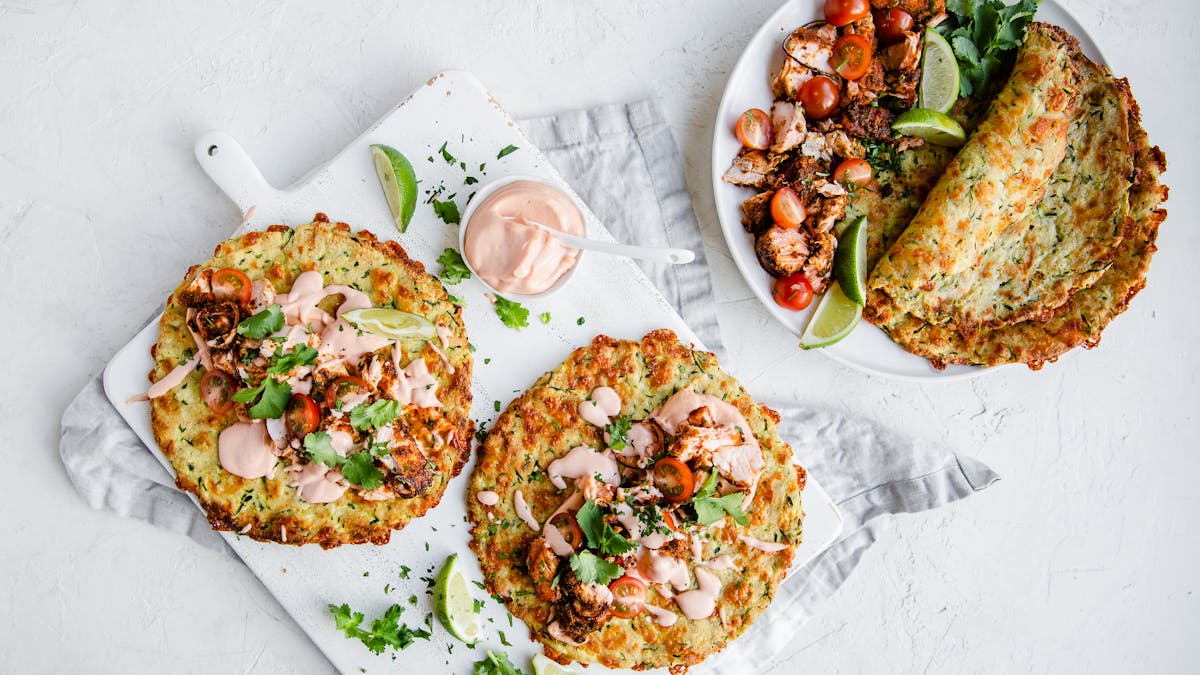
A low-carb diet for beginners
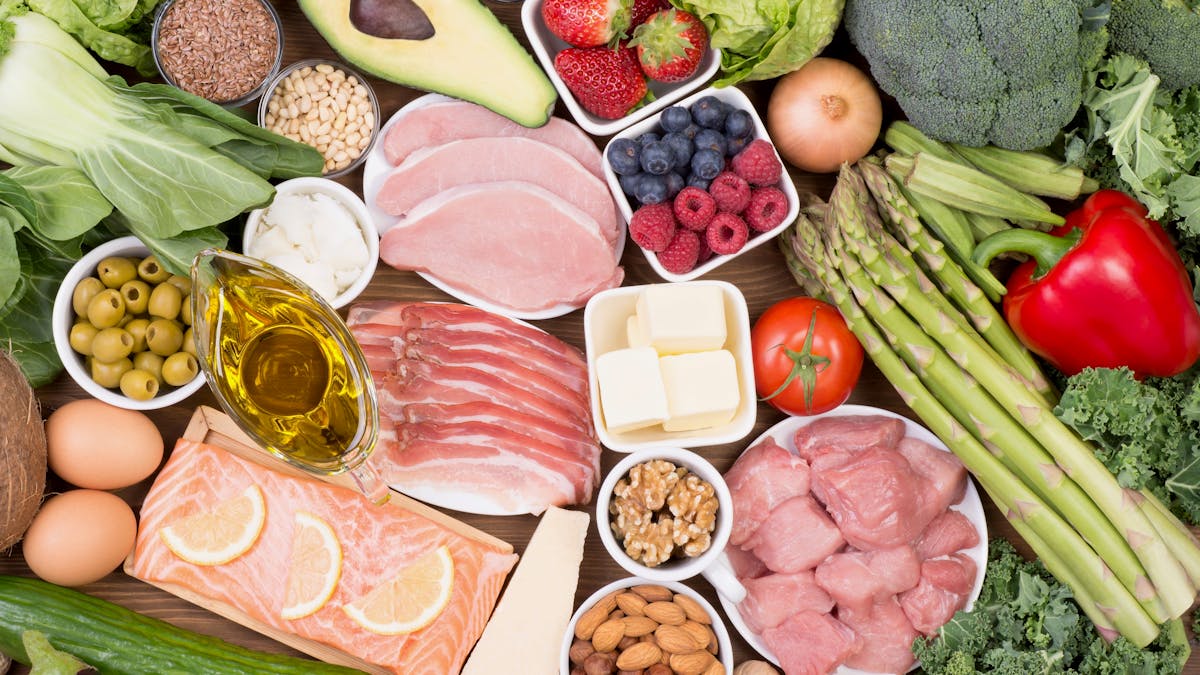
Low-carb foods

14-day low-carb diet meal plan
Low-carb fruits and berries
– the evidence
This guide is based on scientific evidence, following our policy for evidence-based guides.
It's written by Dr. Andreas Eenfeldt, MD. The latest major update was on December 25, 2020. Further research and fact-checking by Paul Rutkovskis.
The guide was medically reviewed by Dr. David Cavan, MD, on February 22, 2019, by Dr. Bret Scher, MD, on February 10, 2020, and by Professor Fredrik Nyström, on December 25, 2020.
The guide contains scientific references. You can find these in the notes throughout the text, and click the links to read the peer-reviewed scientific papers. When appropriate we include a grading of the strength of the evidence, with a link to our policy on this. Our evidence-based guides are updated at least once per year to reflect and reference the latest science on the topic.
All our evidence-based health guides are written or reviewed by medical doctors who are experts on the topic. To stay unbiased we show no ads, sell no products and take no money from the industry.12 We're fully funded by the people, via an optional membership.13
Read more about our policies and work with evidence-based guides, nutritional controversies, our writers team and our medical review board.
Disclaimer: While a low-carb diet has many proven benefits, it's still controversial. The main potential danger regards medications, especially for diabetes, where doses may need to be adapted. Discuss any changes in medication and relevant lifestyle changes with your doctor. Full disclaimer
Our low-carb advice and recipes are meant for adults with health issues, including obesity, that could benefit from a low-carb diet.
Controversial topics related to a low-carb diet, and our take on them, include saturated fats, cholesterol, whole grains, red meat, whether the brain needs carbohydrates and restricting calories for weight loss.
Should you find any inaccuracy in this food policy, please email andreas@dietdoctor.com.
Source: https://www.dietdoctor.com/low-carb/fruits

Leave a Comment